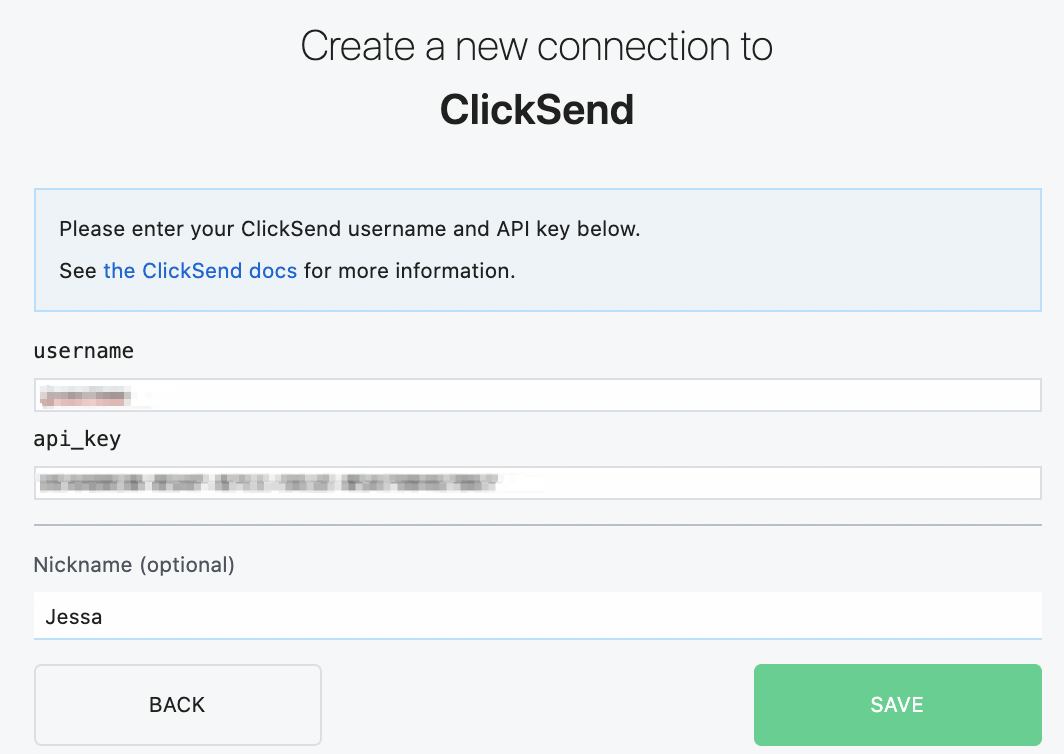What do you want to automate
with ClickSend SMS and Supabase?
Prompt, edit and deploy AI agents that connect to ClickSend SMS, Supabase and 3,000+ other apps in seconds.
Trusted by 1,000,000+ developers from startups to Fortune 500 companies
Popular Ways to Connect ClickSend SMS with Supabase#
Popular ClickSend SMS and Supabase Triggers#
Emit new event for each new incoming SMS message received. See the documentation
Emit new event for every new row added in a table. See documentation here
Emit new event when a new voice message is received or sent. See the documentation
Emit new event for every insert, update, or delete operation in a table. This source requires user configuration using the Supabase website. More information in the README. Also see documentation here
Popular ClickSend SMS and Supabase Actions#
Creates a new contact in a specific list. See the documentation
Sends a new MMS to one or multiple recipients. See the documentation
Overview of ClickSend SMS#
The ClickSend SMS API unlocks the potential to integrate robust messaging capabilities into your workflows. With Pipedream, you can not only send SMS messages programmatically but also automate notifications, streamline communication based on events, and much more. Whether you're confirming orders, alerting staff, or engaging with customers, ClickSend and Pipedream make these tasks seamless.
Connect ClickSend SMS#
import { axios } from "@pipedream/platform"
export default defineComponent({
props: {
clicksend: {
type: "app",
app: "clicksend",
}
},
async run({steps, $}) {
return await axios($, {
url: `https://rest.clicksend.com/v3/account`,
auth: {
username: `${this.clicksend.$auth.username}`,
password: `${this.clicksend.$auth.api_key}`,
},
})
},
})
Overview of Supabase#
Supabase is a real-time backend-as-a-service that provides developers with a suite of tools to quickly build and scale their applications. It offers database storage, authentication, instant APIs, and real-time subscriptions. With the Supabase API, you can perform CRUD operations on your database, manage users, and listen to database changes in real time. When integrated with Pipedream, you can automate workflows that react to these database events, synchronize data across multiple services, or streamline user management processes.
Connect Supabase#
import { axios } from "@pipedream/platform"
export default defineComponent({
props: {
supabase: {
type: "app",
app: "supabase",
}
},
async run({steps, $}) {
return await axios($, {
url: `https://${this.supabase.$auth.subdomain}.supabase.co/rest/v1/`,
headers: {
Authorization: `Bearer ${this.supabase.$auth.service_key}`,
"apikey": `${this.supabase.$auth.service_key}`,
},
})
},
})
Community Posts#

